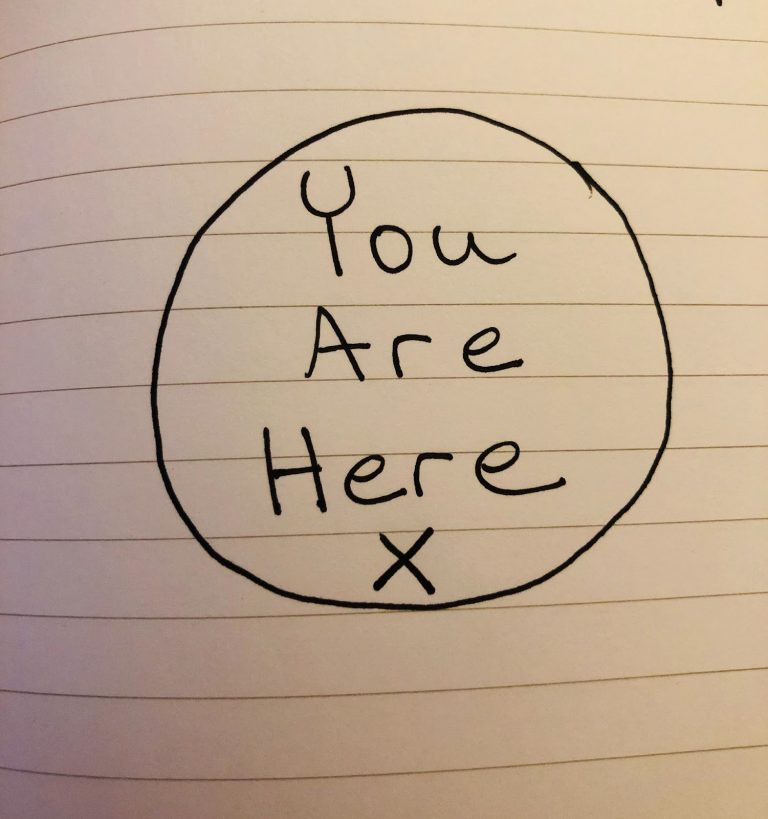Permaculture communication skills, speaking with compassion and the need to be understood.
This has been popping up a lot in my life for quite some time now, lets dive in this topic for a moment.

Whether you subscribe to Nonviolent Communication, Love Languages, Right Speech from Buddhism or other communication styles which involve the slightest bit of empathy and compassion in order to really listen and speak to be understood, you know by now that this empathy and compassion need to be real — otherwise, it’s quite clear that somehow, the message is perceived differently than what intended.
In today’s world, where most of us humans walk around feeling less than worthy, how do we give the true value of something without diminishing other things? How do we value ones without devaluing others?
With leaders like Boris Johnson or Donald Trump, who basically say anything that pops into their heads, how do we agree on a consensus which mainstreams compassion instead of conflict?
I’m taking a course on Ecological Design and one interesting aspect of building community is the ability to communicate clearly. In the past, I struggled with that, I wasn’t able to voice concerns, problems accurately, or issues that bothered me in a way that wasn’t either confrontational or put others on a needless pedestal in order to protect myself from harm. Neither the confrontation or that shield actually worked all that well, and I did learn from my mistakes. But it left lingering this lesson, that keeps repeating: when one is faced with subtle aggression, whether social or through needless criticism by parents who have had it with messy kitchens, how do we communicate effectively our actual needs?
The thing isn’t just about “I need a glass of water” spoken in the most flat faced inexpressive face ever, but to say what’s behind the thirst in a way that is both enlightening to the other that your priority at the moment is to drink water, and it’s compassionate enough to leave hanging that you truly care for the person, that after that glass of water you might be available for deeper care and affection. The glass of water is an example.
I often remember a Koan from Zen Buddhism: Two monks were walking a long way to their monastery while in a vow of silence, and they were forbidden to speak to, think about or touch women by their religion. One beautiful woman crosses their path, and she’s unable to cross a small stream that lied between them, so one monk promptly helped her by carrying her across. They carry on they journey, and the second monk eventually explodes and very angrily tells the other that he has failed his duty and can be expelled from the monastery if he’s not careful. The first monk turns very quietly and responds that the beautiful woman is on the angry monk’s mind as he had forgotten about his good deed already.
For how long can we carry old grudges, fears, angers?
I’m often faced with this conundrum when dealing with issues from my late father. I’ve recently became close to one of his best friends, we share a lot of things on Facebook because he’s quite the culture library and I think I’m into some interesting things as well. Anyway, out of the blue the other day he decides to speak to me about my father, and I immediately start to shut away from the conversation. I politely said it’s difficult for me to speak about my father, but he insisted. Turns out, I got to understand my father a lot better (almost 15 years after his passing) than I did by now. It’s very interesting for me to know that somehow my father simply had lost hope. Until then, we was a shining light in this sometimes very dark world, a creative person, with incredible generosity and an amazing sense of humor, a true friend and truly kind. I have to say, that was not exactly the father I knew. But everyone does say the same thing… One thing they all like to add is that he truly loved his daughters. I became really teary with this, because at one point in my father’s story, he eventually said he didn’t want to have the trouble of being a father. So for me to conciliate these two images of him and them both being right, is sort of like playing connect four with some pieces being squares. They don’t seem to fit, but they do match.
I speak about this for two reasons: one is how lack of communication effectively ruined my father’s life, and second how this led to losing hope and eventually self-destructive behaviors until his late years.
The biggest pain I’ve had to deal with in therapy is the idea that I can’t ever help him gain hope again. That was my struggle when he was alive, and continues to be an internal struggle after his passing. I went through a phase of blaming him for every single problem I had in life, and when that part was over, I was left with a sense that somehow, I had to go through similar to truly understand the dangers of miscommunication, misplaced anger, and loss of hope. It was quite a lesson for me to realize that this father I knew, was once an incredible powerhouse of fun, hope and achievement. So the only thing I can do, is to give my own self hope for a better day. Most of the reason why I do what I do in life, and write about the things I write about.
So, what was the exact issue of the miscommunication? First, he didn’t feel loved by the society he was in. Second, he didn’t feel loved by his family. Third, I have a hard time believing he had a true sense of what love actually is. Maybe he never recognized it.
How often we see people with these characteristics? This is the culprit of what causes lack of communication and miscommunication.
I was talking to a colleague tonight and he was saying that somehow, this need for love allows us to see that we are in the same boat in life, just hoping for enough affection and self-worth to do something, to be something, to transcend our most self-destructive patterns.
Tara Brach says we all walk around with a giant billboard that says “Love me” on the top of our heads. Like somehow, in the midst of it all, the only thing we truly want and the reason why we do all we do is to feel loved, appreciated, worthy of being here. When society around you makes that love conditional, you can’t help but wonder if there are conditions to the love you think you deserve. And most of all, if love is shown conditional by others, when others are unable to support you in hard times, how do you confront the internal chaos that is the feeling of displacement, neglect and overall, abandonment?
Intergenerational trauma thrives on conditional love. I’ll love you, “if”.
But can you truly love an abuser? Donald Trump? Erdogan? Netanyahu? We delegate that love to those around them, and we kind of slightly hope that they aren’t as loved as they appear to be. Worse, we feel that love then becomes some sort of transaction: okay, now I love you and you love me, but when this is over: adios!
Is it really like that? Or after the pains leave, love is still there? What holds precious memories together, but the love to be alive? It can’t be truly a transaction, is more like sharing reality for a bit and doing what you can about it.
There’s a lot of forgiveness when we truly understand each other in deep ways. There isn’t a place to hold anything against anyone, when we know the true stories behind everyone’s actions. That does not mean that compassion is blind. I mean, I’ve truly forgiven some mistakes from others in the past, but that does not mean I want them in my life. I’ve forgiven myself, and it does not mean I’ll repeat my past actions. It just means I have the courage to love myself first, and not be apologetic but compassionate and less than judgemental when it comes to understanding others.
When it comes to my father, the “he just lost hope” bit was truly altering. I understood on a very deep level what it means to lose hope, and how we feel that somehow life does not love us enough, that we aren’t worthy enough.
This leads to seeing things very black and white, and a lot worse than they truly are. We see the world around us and, as a lot of people do, say “things are going to shit”. But they are truly not… there has never been as much push to make society and humanity work in the favor of the good things in life. I urge you to go to this website and fuel on a little hope.
So, in the end, communication is effectively about worthiness. About making others feeling worthy.
We are, in fact, all worthy of being here.



